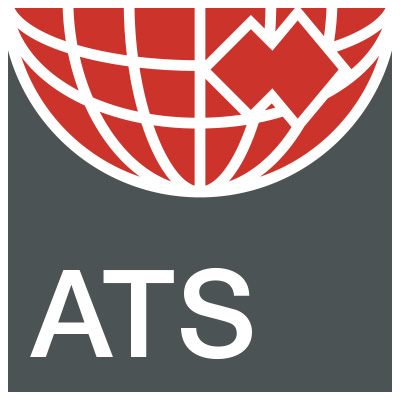
Australasian Taxation Services
Your Australian Taxation Specialists
Tax Considerations for Australian Expatriates
澳大利亚外籍人士的税务考虑因素
Many Australian expatriates choose to come abroad to escape the personal tax regime of Australia and can be surprised to find the many advantages available for Australian Expat Tax Planning while abroad that can significantly reduce the impact of taxation on eventual return to Australia.
Making sure you make the most of your time overseas is a responsibility that only you can assume, and takes discipline and an informed plan. ATS has been advising Australian expatriates since 1995 and helping them set manageable strategies to achieve the best results. Please use this general guide on tax planning prior to leaving Australia and whilst you are away to give you some direction and contact us for further information.
Leaving Australia
Whether you remain a tax resident or become a non-resident for tax purposes depends on Residency as a question of law and fact. It is safe to say that anyone taking a long term position for more than 12 months and relocating their family and life to an overseas destination shall be deemed as a non-resident for tax purposes. However, the tax office has rulings on this topic with examples for particular circumstances and there may be some grey areas which need to be explored. Once it is determined that you are a non-resident for tax purposes some key issues need to be addressed.
Capital Gains Tax
The current law provides for some assets held by people leaving Australia and becoming Non Residents to be deemed as sold on the date of departure. Real Estate assets are not affected by this rule and remain subject to Capital Gains Tax at the point of actual sale.
The deemed sale of assets, such as shares, can create a tax liability that may not be welcomed. This can be waived by a declaration in your Income Tax Return deferring the Capital Gains Tax until a future taxable event, such as the actual sale at some later point. The decision to have the deemed sale or defer should be made with thorough analysis to decide which is the best in the circumstances.
It is important to note that once you become a non-resident, most assets investment assets (except property) become free of Capital Gains Tax whilst overseas, if tax has been paid up to the date of change in residence. Therefore some advantage can be achieved by having the assets deemed sold on departure if the resultant Capital Gain is small, as the future earnings will not be subject to taxation whilst a non-resident.
Superannuation
Advice should be sought from your Superannuation consultant regarding Superannuation benefits you have built up and exploring options of rolling over existing benefits or cash in policies. If you operate a self-managed Superannuation Fund (SMSF) you are required to have the management and control of the fund in Australia. This may require appointing an Australian resident to act on your behalf and is required to be done within two years of you becoming a non-resident.
You should not make any contributions to a SMSF whilst living overseas as this can have serious consequences and affect the compliance status of your fund.
Family Home
A decision is usually made on whether to rent the family home whilst abroad. This will have tax implications as Property Rentals are taxable for Non-Residents. Importantly all costs in relation to owning a property are claimable and offset any tax. This includes interest and depreciation allowances, which in many cases can ensure that no tax liability will be created on the rental income. In most cases the Capital Gains Tax free status of the Principal Residence can carry on even during a temporary absence of up to six years.
Whilst you are away
A settling period of many months or years is common for expatriates as they adjust to a new lifestyle and higher disposable income. Once this settling period passes, particular attention should be paid to savings and investment opportunities in the following areas.
Debt Reduction
Clearing private debt is a major priority, such as credit cards and personal loans, as these loans have no tax benefit and often high interest rates. Reducing debt on the family loan or other investment property is another option but not a recommended one, because loans on income producing property hold substantial tax benefits. So these should be maintained and any reduction should be made when you return to Australia. However should you have a loan on a property that you do not foresee renting out at some future date, such as a personal residence or a holiday house, then these loans should be reduced.
Australian Property
Australian Property is the best tax planning tool whilst overseas and is a wise way to have forced savings. You should borrow at reasonably high levels, say 60-80% finance, to maximise tax advantages. Normally the interest cost should be enough to have the property make an annual taxable loss and the expenses of ownership and interest are higher than the annual rental. This loss is commonly referred to as "negative gearing".
Whilst overseas this loss has nothing to offset against, except other property income or property capital gains, and accrues each year. Eventually when you return to Australia, this built up loss will be able to offset your salary, investment income or retirement income providing you with a significant buffer against taxation for many years.
This is further enhanced by the tax benefits afforded to new and near new property for depreciation on fittings and a special allowance to deduct construction costs. The long term taxation benefits associated with Australian property should not be underestimated and should be integral in every expatriates financial planning whilst overseas.
Australian Shares
Acquiring Australian shares whilst overseas is a very effective saving strategy. Selection is always the hardest part but assuming you seek appropriate advice, the tax benefits again make this an excellent savings option. For non-residents, virtually all share trading whilst overseas is free of tax and therefore no Capital Gains Tax will apply to capital gains, and also any dividends that the company has paid Company Tax on will also be given free of tax, whilst where no tax has been paid by the company, a withholding tax of 15% will be levied on "unfranked dividends". When you return to Australia, the shares will become subject to tax, but only on gains made in excess of the Market Value on the date of returning to Australia as a resident. As such all profits achieved whilst overseas are achieved free of Australian taxation.
Other Non-Australian Shares and Trusts
The same rules apply to Non Australian shares. As for Australian, no Australian Tax will apply to Non-Residents. Again, tax will begin to accrue only on the gains from the increase in market value on the date of return. Some special rules do apply to a select group of investments in non-public trusts, where the capital gains may be taxable each year on an accrual basis. This area is very complicated and you should seek expert advice on a case by case basis to be sure of the potential tax implications.
Other Non-Australian Assets
Any other assets acquired whilst overseas such as property or antiques, will also become taxable in Australia once you return as a tax resident. Again any future capital gains tax will only be levied on the increase in the market value on the date of return. With this knowledge it is essential to obtain a sworn valuation on these assets at the time of return to avoid any problems in the future to establish the market price.

Need Australian Tax Advice?
Speak to our friendly ATS team for all your Australian taxation enquiries and take advantage of our free property tax estimator for Australian property investors.